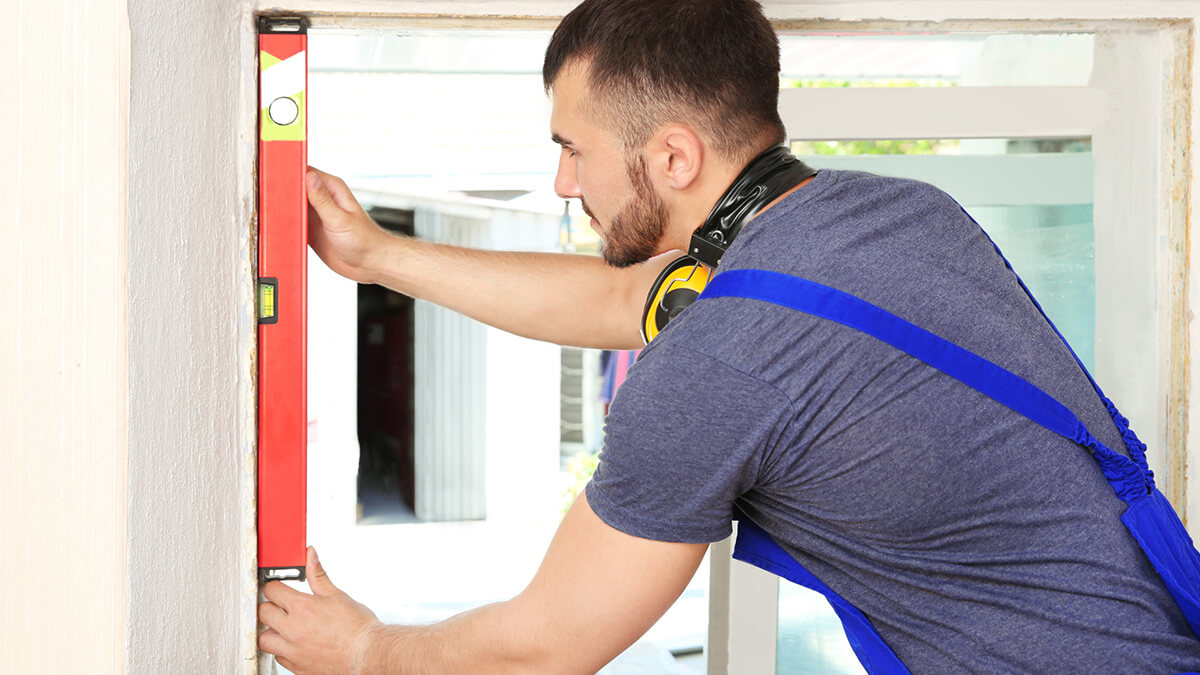Home Value with New Windows
Homeowners’ that intend to sell their homes are often looking for ways to increase the property’s value. One of the best ways to do so is by installing new windows, although it can be difficult to determine whether the investment is worth the cost.
In this article, we’ll examine how new windows can affect your home’s market value, the best types of windows for a return on investment, and tips for making smart window upgrades.
iBuyer.com provides homeowners with quick cash offers, so you can invest in the necessary upgrades to secure a higher value offer for your home.
Compare Cash Offers from Top Home Buyers. Delivered by Your Local iBuyer Certified Specialist.
One Expert, Multiple Offers, No Obligation.
Do new windows increase home value?
Investing in energy-efficient features, such as new windows, can increase a home’s value. While the initial cost of replacement windows may seem daunting, some states offer tax incentives to offset the expense.
According to CNBC, spending $10,000 on vinyl windows can yield an ROI of 70%, with potential annual energy bill savings of up to $465. Check your state’s available options to see how you can improve your home’s value with energy-efficient upgrades.
Time to replace?
Window quality is one of the major things that home appraisers take into consideration when conducting an appraisal. Even without a home appraiser, you can take a look at the windows in your home and see if it’s time for an upgrade.
If your windows appear to be sticky, warped, or discolored, it may be time for replacements. Sticky or discolored windows are usually a sign that moisture has been seeping in, and your windows may be at risk for rot or decay.
If you’ve been noticing higher energy bills or air drafts near closed windows, your windows are likely leaking air. This energy inefficiency can cause dramatically more expensive energy bills, and it may be time for replacements.
Types of windows
If you’ve decided it’s time for new home windows, it’s also time to learn more about the different types of windows. Advances in window technology have also improved the energy efficiency and durability of most window options.
There are six traditional window styles:
1. Awning
Awning windows have hinges along the top and open at a vertical angle towards the outside. This type has lower rates of air leaks than a sliding window.
2. Casement
Similar to an awning window, casement windows have hinges along the side. Like a door, casement windows open at a horizontal angle towards the outside. This type of window, like the awning, also has lower rates of air leaks.
3. Hopper
Like the opposite of the awning window, hopper windows have hinges along the bottom and open towards the interior. Similar to both the awning and casement, hopper windows have lower rates of air leakage.
4. Fixed
As the name might imply, this window type does not open. This window type is generally airtight and not prone to leakage.
5. Single- or Double-hung
This window type opens by sliding vertically. In single-hung windows, only one sash slides open. In double-hung, both sashes slide open. This type of window is highly prone to air leakage.
6. Single- or Double-sliding
Like the single- and double-hung window types, the sashes in this window type slide horizontally rather than vertically. This type is also prone to air leakage.
Energy efficiency
One of the biggest emerging trends for home buyers is energy-efficient windows. When you realize that windows contribute around 25-30% of a home’s heating and cooling, it becomes evident how important the windows are. It’s easy to see how choosing energy-efficient windows will increase your home’s value.
The National Fenestration Rating Council, or NFRC, offers energy performance rating labels for window types that can tell you a lot about the efficiency of any particular window. While shopping for window replacements, these labels will be a great way to tell which windows will improve your energy efficiency quickly.
Frames
Frames contribute the most to a window’s energy efficiency. Although homebuyers are looking for energy-efficient windows, consumers have reported that the type of window frame does not matter as much as the potential energy savings.
Even so, the type of frame you choose will impact the cost, so it’s important to familiarize yourself with the different window options.
Aluminum and metal frames
These frame types are both lightweight and strong, though they do not insulate very well on their own. Aluminum and metal frames tend to be at the mid-range price point.
They require very little maintenance but are not likely to reduce heat transmission by any significant amount.
Composite frames
As the name implies, composite frames are made of multiple materials. In this case, they are made of wood products mixed with plastics. The result is a frame that has better resistance to moisture and rot than a traditional wood frame. Additionally, composite frames offer comparable insulation from heat.
Fiberglass frames
These window frames are durable and energy-efficient, but they tend to be somewhat more expensive. They are a high-quality option for frame material and are very resistant to changes in temperature and weather.
Vinyl frames
If you’re looking for a wide variety of window styles without breaking the bank, vinyl is a great option. In addition to being energy-efficient, vinyl frames are very sturdy and help reduce harmful condensation from forming on your windows.
However, one drawback to vinyl frames is that they are not as durable as aluminum, fiberglass, or wood frames.
Wood frames
Wood frames are some of the most energy-efficient frames on the market, but they also tend to be very pricey. They can be very beautiful and lend a natural, charming appeal to your home.
However, wood frames will require more maintenance than other frame types. Wood is highly susceptible to change in moisture levels, rot, and decay.
Glass
Choosing the right glazing or glass treatment for your windows can also help improve your home’s overall energy efficiency. For example, if you have a window that faces east or west, you will likely want to choose a treatment that helps reduce the amount of heat from direct sunlight.
An insulated window is one type of window glazing. An insulated window will have two or more panes of glass. The panes have a small amount of distance between them and are hermetically sealed. This air gap acts as an insulating space.
Low-emissivity coatings, or ‘Low-E’ coatings, reduce the amount of heat transferred through windows. These types of coatings are typically applied to the glass during the manufacturing phase.
Low-e glass coatings may be more expensive, but they can reduce your home’s energy loss anywhere from 30% to 50%. However, Low-E films can be bought separately and applied to windows after the fact.
Window installation
As an informed consumer, you will likely choose the most energy-efficient window options on the market that fit your budget. However, without proper installation, you might be throwing your money away.
Proper installation of your windows will ensure that you get the most value and energy efficiency from your purchase.
Be sure to check the warranty information on any windows or window frames you purchase. If the windows are not installed according to the instructions provided by the manufacturer, your warranty runs the risk of becoming void.
The price of window installation by trained professionals is another cost to consider when replacing your windows. It’s important to take this part of the window replacement process seriously since improper installation could lead to even more expensive setbacks.
The bottom line
Replacing your windows will be costly, but do new windows increase home value? Yes, absolutely.
If you plan to live in your home for some time before you sell it, new windows may be a worthwhile investment as you will be able to enjoy the energy-efficient benefits. Additionally, new windows can revitalize your home’s appearance and show your pride as a homeowner.
However, if you’re looking to sell your house sooner rather than later, new windows alone are not likely to seal the deal. There may be other improvement projects that may have slipped your mind.
If you’re looking for a quick and easy way to find out the value of your home right now, try using the free home value estimator here on iBuyer. You can even get a no-obligation cash offer for your home!
Instant Valuation, Confidential Deals with a Certified iBuyer.com Specialist.
Sell Smart, Sell Fast, Get Sold. No Obligations.
Reilly Dzurick is a seasoned real estate agent at Get Land Florida, bringing over six years of industry experience to the vibrant Vero Beach market. She is known for her deep understanding of local real estate trends and her dedication to helping clients find their dream properties. Reilly’s journey in real estate is complemented by her academic background in Public Relations, Advertising, and Applied Communication from the University of North Florida.




